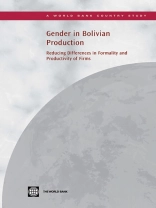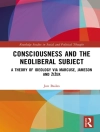Bolivia’s informal economic sector is the largest in Latin America, and women-owned businesses tend to be overrepresented in the informal sector and to be less profitable than firms in the formal sector. This study seeks to better understand gender-based differences in firms’ tendencies toward formality, the impact of formality on profits, and the productivity of small informal firms. Using data from firm surveys, national household surveys, and qualitative data from focus groups, the study conducts a gender analysis of formality and productivity in six different sectors in Bolivia. The findings shed new light on how gender-based differences contribute to a firm’s decision to become formal and the consequences of this decision for profitability. The outcomes of the study suggest that policies should focus on increasing the productivity and scale of women-owned businesses. Two general priorities emerge: promoting women’s access to productive assets to facilitate growth and productivity and providing an enabling environment for women’s entrepreneurship by expanding women’s choices and capacity to respond to market opportunities.
Maria Arribas-Banos & Trine Lunde
Gender in Bolivian Production [EPUB ebook]
Reducing Differences in Formality and Productivity of Firms
Gender in Bolivian Production [EPUB ebook]
Reducing Differences in Formality and Productivity of Firms
Mua cuốn sách điện tử này và nhận thêm 1 cuốn MIỄN PHÍ!
Ngôn ngữ Anh ● định dạng EPUB ● ISBN 9780821380161 ● Nhà xuất bản The World Bank ● Được phát hành 2009 ● Có thể tải xuống 3 lần ● Tiền tệ EUR ● TÔI 5845367 ● Sao chép bảo vệ Adobe DRM
Yêu cầu trình đọc ebook có khả năng DRM












